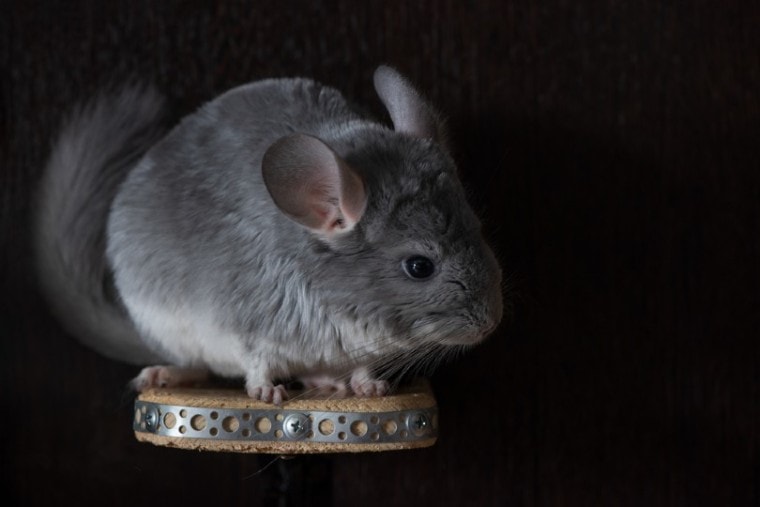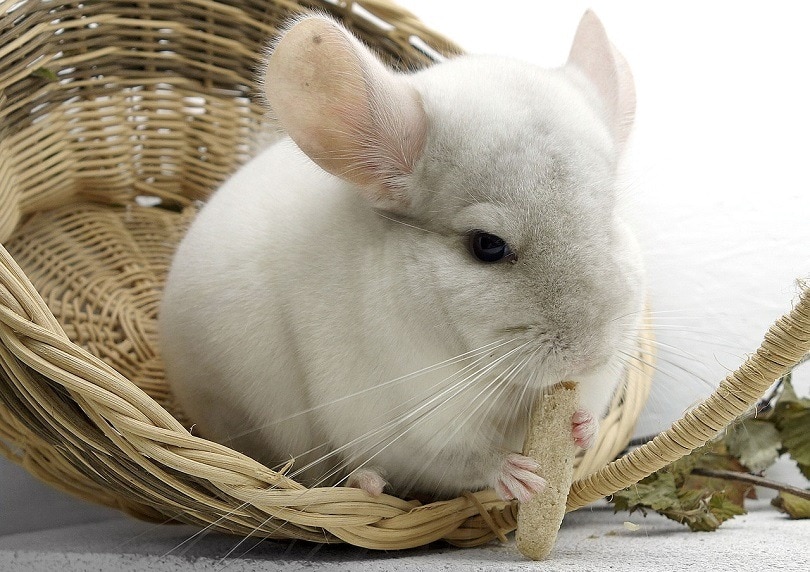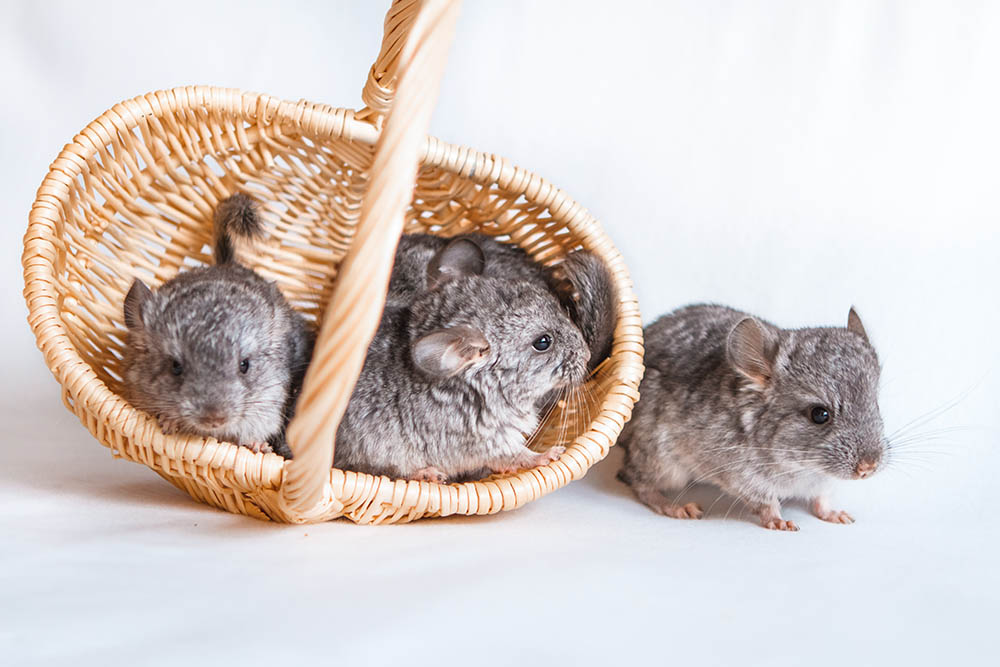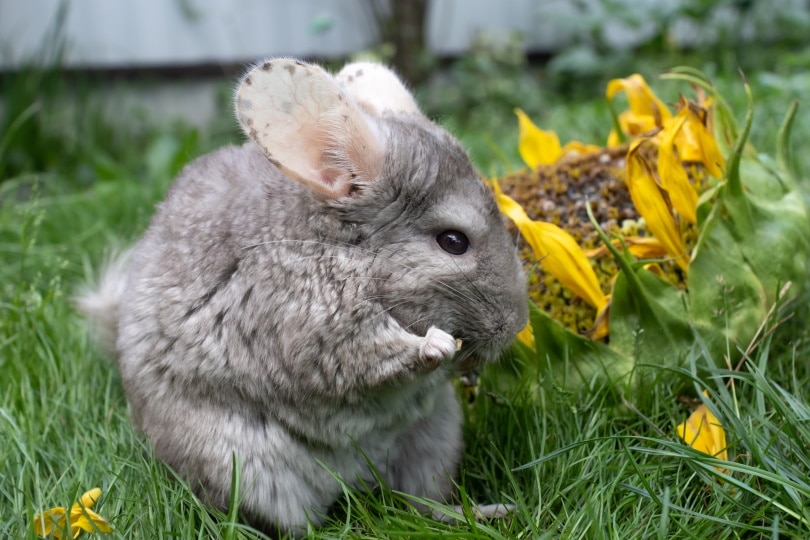
Chinchillas are adorable animals that are very fun to keep, but most people aren’t familiar with them and their habits. Understanding the natural habits of pets you’re keeping is one of the best and easiest ways to keep your pets healthy.
So, are chinchillas nocturnal? They’re actually primarily crepuscular animals, which can be a difficult environment to replicate in some homes.
What Do Nocturnal and Crepuscular Mean?
Chinchillas can see in the dark, possibly better than humans do. Though they do need some light to view their surroundings, they function better in dim lighting. There are several unique features that chinchillas possess that allow them to do so:
In addition, chinchillas have the ability to see in color, too 1.

Can Chinchillas See in the Dark?
While chinchillas can’t see in pitch black, they have exceptional vision and can see in very low light environments. This gives them the ability to search for food while watching for danger during the darkest parts of the day. The great vision that chinchillas have can create some problems for them, though, because it means their eyes are highly sensitive. It can be stressful and potentially damaging to your chinchi’s eyes to keep them in an area where lighting may rapidly change, like rooms without much natural light where the flip of a switch may take the room from dark to bright.

When Do Chinchillas Sleep?
Chinchillas are most active at dawn and dusk and usually spend their nights exploring, jumping, playing, dust bathing, and feeding. They typically spend their days sleeping in a cave or other hiding spot.
Though pets can sometimes adapt to your schedule to a certain extent, it’s not feasible to expect your chinchilla to become entirely diurnal, sleeping throughout the night and only waking up during the day.
Therefore, if you notice your chinchilla sleeping throughout the day, it’s important to remember that this behavior is completely normal. More importantly, you should not startle them or try to rouse them from their sleep during the day, as sleep is necessary for their health (just like it is for us!).
In Conclusion
Chinchillas are not truly nocturnal animals, but they do have vision adaptation that allows them to see well in the dark. This makes them successful at nocturnal life, although they prefer a crepuscular lifestyle.
It is important to keep in mind that your chinchilla will likely spend their days sleeping. Such behavior is normal, and more importantly, you shouldn’t disrupt their sleep, as sleep is necessary for their health.
- See Also: Do Chinchillas Need Light?
Featured Image Credit: Igor Kovalchuk, Shutterstock








